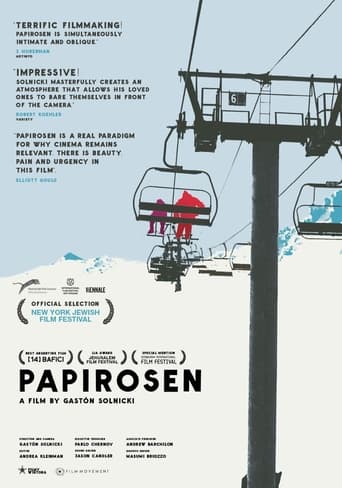

Plot so thin, it passes unnoticed.
... View MoreThis story has more twists and turns than a second-rate soap opera.
... View MoreAfter playing with our expectations, this turns out to be a very different sort of film.
... View MoreThe best films of this genre always show a path and provide a takeaway for being a better person.
... View MoreAt some point (as we learn near the end of the documentary) director Gastón Solnicky decided to record the goings-on in his family, including squabbles, separations, pleas for money and adherence (or lack thereof) to Jewish rituals and customs by diverse family members. By their statements we learn that Grandmother and Grandfather emigrated to Argentina from Poland illegally, Grandfather could not cope with Holocaust memories, and that from the relatives that could not flee Poland, no one survived. The family looks solidly middle class, integrated in Argentina (everyone except Grandmother Pola speaks with perfect Buenos Aires accent) without loss of their Jewish identity.To his own filming Solnicky adds other materials like old home movies, presented in no particular order and a VHS of a bar mitzvah, which completes the movie in an upbeat note. The film holds together well, in spite of being essentially a home movie. As home movies go, there is a bit of staginess and play-acting here and there.Papirosen (or Papirosn) means "cigarettes" in Yiddish. It is the title of a song, popular in Poland and Russia especially during WWII. Pola sings the beginning in one scene.
... View More